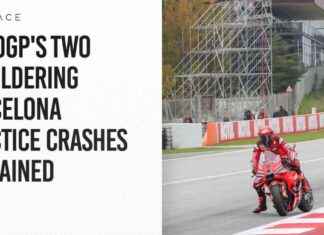The first rounds of sanctions on Russia for the invasion of Ukraine came with loud announcements, displays of unity, trumpets and celebrations. The following, with pride, satisfaction and more promises. But the last ones, increasingly more complicated, more and more difficult, more and more concrete, are something else. They are negotiated and resolved in a much more discreet, almost uncomfortable way. And they come out ahead with less coverage, impact, attention.
The decisions continue to be made, the mechanisms are adjusted and refined, but the fatigue that is seen on the battlefield, in the chancelleries, in those in communication, is also reflected among those who negotiate the most technical details for almost two years. after the start of the attack.
This Monday, the 27 have finally given the green light to the 12th package of sanctions against Moscow, a negotiation that was attempted to be concluded last week but was not possible, which received the political support of the leaders at the European Council on Thursday, and that it has now been finalized by a procedure of silence, that is, without anyone, not even Viktor Orban’s Hungary, formally objecting.
“With the 12th package, we present a robust set of new schedules and economic measures that will further weaken Russia’s war machine. Our message is clear: we remain steadfast in our commitment to Ukraine and will continue to support its fight for freedom and sovereignty “said the high representative for Foreign Policy, Josep Borrell.
Specifically, this package includes additional lists of individuals and companies that join the existing ones, as well as new import and export prohibitions, such as bringing Russian diamonds to Europe, something that Belgium had been fighting for two years to prevent. His argument was that it would do a lot of damage to his country’s economy, but not to the Russian economy, because sanctions would be very easily dodged through the Gulf or Indian markets. To achieve this, in recent months the G7 has worked on a traceability mechanism that, they trust, will serve to prevent further circumvention.
In addition, the package “toughens enforcement of the oil price cap through closer monitoring of how tankers can be used to circumvent the cap, as Moscow has managed to continue bringing in billions through a fleet of “shadow oil tankers” and companies based in all kinds of places, from Singapore to Pakistan, avoiding the usual circuits that the West believed they had completely monitored. The sanctions for this reason also contemplate stricter obligations regarding the immobilization of assets and harsh measures against third-country companies that evade sanctions, says the European Commission.
“The European Union is determined to further weaken Russia’s ability to wage its war of aggression, by further strengthening its sanctions and by their full and effective implementation and prevention of their circumvention, especially in the case of high-risk goods, in close cooperation with partners and allies,” said the summit conclusions document ratified by the 27 on Thursday afternoon.
“The European Council welcomes the adoption of the 12th sanctions package. It also welcomes the agreement reached on the Directive on the definition of offenses and sanctions for the infringement of restrictive Union measures. The European Council condemns the continued military support to Russia’s war of aggression provided by Iran, Belarus and the DPRK. It also urges all countries not to provide material or other support to Russia’s war of aggression,” it read.
With the approval of the governments, more than 140 people and entities have been added to that list of the Foreign Action Service directed by Josep Borrell, which implies the immobilization of assets such as Russian military and defense agents, including companies of the military industry and private military companies. Agents from the information technology sector and other important economic agents are also included. But not the Raiffeisen Bank International (RBI), protected by Vienna at all costs.
“The measures also target those who have orchestrated the recent illegal so-called ‘elections’ in the territories of Ukraine that Russia has temporarily occupied, and those responsible for the forced ‘re-education’ of Ukrainian children, as well as agents who spread disinformation or propaganda in support of Russia’s war of aggression against Ukraine.”
The vast majority of national governments have had or have problems with sanctions, because they affect their economies. Without going any further, Hungary threatens Bulgaria with preventing its arrival in Schengen if it does not remove the restrictions for Russian oil to pass through its territory. And the large Greek or Maltese shipping companies were desperately looking for shortcuts for their ships.
Belgium had a problem with diamonds from the beginning, just as Italian luxury companies wanted exemptions. Now, finally, the EU adds a ban on the import of non-industrial diamonds, mined, processed or produced in Russia, a measure coordinated internationally by the G7, “whose objective is to deprive Russia of this important income stream, estimated at 4,000 million euros per year”.
All G7 members will directly implement the ban on diamonds exported from Russia by January 1, 2024. A ban on polished Russian diamonds in a third country will come into force from March 1, and from On September 1, the measure will be expanded to cover diamonds, jewelry and watches containing diamonds produced in laboratories.
On energy, after the EU has reduced dependence on gas or crude oil from Moscow in previous packages, certain provisions are now added. This tightens the G7 limitation applicable to oil prices by introducing new measures aimed at more closely monitoring the sale of oil tankers to third countries, with more detailed certification requirements.
“This will help to tackle the ‘shadow fleet’ used by Russia to circumvent the price cap. In this regard, the EU is in close dialogue with G7 partners to ensure the harmonization of our measures and future guidance “. Likewise, a new import ban on liquefied petroleum gas (LPG) is added that affects annual imports worth more than 1,000 million euros, with a prior clause in existing contracts for a maximum period of 12 months.







